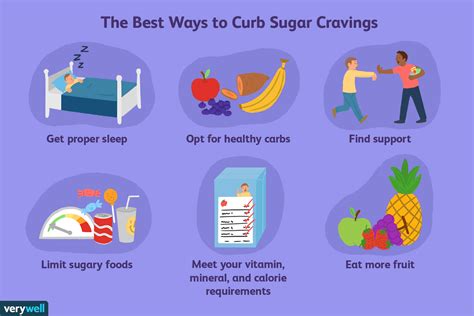How to Stop Craving Sweets: A Guide to Conquer Your Sugar Addiction
Sugar cravings. We've all been there. That intense, almost overwhelming urge to devour a chocolate bar, a slice of cake, or a handful of cookies. But what if I told you it's possible to break free from this cycle and conquer your sweet tooth? This comprehensive guide will provide you with practical strategies and actionable tips to help you stop craving sweets and lead a healthier, happier life.
Understanding Your Sugar Cravings
Before we dive into solutions, it's crucial to understand why you crave sweets. It's rarely just a simple case of "liking" sugary foods. Several factors contribute to these intense cravings:
1. Blood Sugar Imbalances:
Blood sugar fluctuations are a major culprit. When your blood sugar drops, your body signals a need for a quick energy boost – and sugar provides that instantly. This leads to a vicious cycle: you eat sugar, your blood sugar spikes, then crashes, leaving you craving more.
2. Nutrient Deficiencies:
Sometimes, sugar cravings are your body's way of telling you it's lacking essential nutrients. Magnesium, chromium, and other minerals play a role in blood sugar regulation. A deficiency can trigger cravings for sugary foods to compensate.
3. Emotional Eating:
Many people turn to sweets as a comfort mechanism to cope with stress, anxiety, or boredom. This emotional eating can lead to ingrained habits and intense cravings.
4. Processed Foods and Additives:
Highly processed foods often contain artificial sweeteners and flavor enhancers that can stimulate sugar cravings and make it harder to resist temptation.
Strategies to Curb Your Sugar Cravings
Now that we understand the underlying causes, let's explore effective strategies to manage and eventually overcome your sweet tooth:
1. Stabilize Your Blood Sugar:
- Eat regular meals and snacks: Avoid skipping meals, as this can trigger significant blood sugar drops.
- Focus on complex carbohydrates: Choose whole grains, fruits, and vegetables over refined sugars and processed foods. These provide sustained energy release, preventing drastic blood sugar fluctuations.
- Include protein and healthy fats: These nutrients help slow down the absorption of sugar into your bloodstream, preventing spikes and crashes.
2. Address Nutrient Deficiencies:
Consider consulting a doctor or registered dietitian to identify any potential nutrient deficiencies. They can recommend appropriate dietary changes or supplements.
3. Manage Stress and Emotions:
- Practice stress-reducing techniques: Explore yoga, meditation, deep breathing exercises, or spending time in nature to manage stress levels.
- Identify emotional triggers: Become aware of situations or emotions that lead to sugar cravings. Find healthier coping mechanisms, such as talking to a friend, exercising, or engaging in a hobby.
4. Read Food Labels Carefully:
Become a label detective! Pay close attention to added sugars, artificial sweeteners, and hidden sugars in processed foods. Choose whole, unprocessed foods whenever possible.
5. Gradual Reduction, Not Cold Turkey:
Instead of drastically cutting out sugar altogether, try gradually reducing your intake. This makes the process more manageable and less likely to lead to intense cravings and setbacks.
6. Find Healthy Alternatives:
Satisfy your sweet tooth with healthier options like fruit, dark chocolate (in moderation), or naturally sweetened treats.
Maintaining Long-Term Success
Overcoming sugar cravings is a journey, not a destination. Consistency and self-compassion are key. Don't beat yourself up over occasional slip-ups. Learn from them and get back on track. Remember, making sustainable lifestyle changes is crucial for long-term success.
By implementing these strategies, you can gradually reduce your reliance on sugar, break free from those intense cravings, and enjoy a healthier, happier life. Remember, you are in control!
